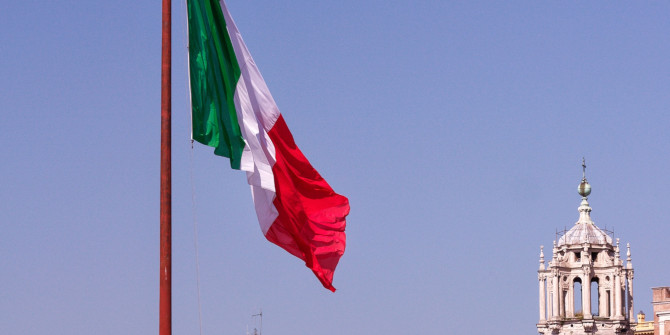Despite widespread protests, Alexander Lukashenko was sworn in for his sixth term as President of Belarus on 23 September. Olena Nikolayenko writes that while there have been a small number of resignations by rank and file police officers over the state’s handling of the protests, the security apparatus has largely remained loyal to the regime. Unless this situation changes, it will be difficult for the opposition to gain the upper hand.
On 23 September, Alexander Lukashenko took the oath of office, declaring the start of his sixth term as President of Belarus. In a room filled with people in military and police uniforms, the autocrat reiterated the idea that Belarus would not have a colour revolution. This surreptitious inauguration ceremony was held in violation of existing legislation, without advance notice, invitations for foreign diplomats, or a live broadcast on national TV channels.
Lukashenko’s political longevity currently hinges upon the will and the capacity of the state apparatus to crush civil resistance. For the past seven weeks, tens of thousands of Belarusians have participated in protests against electoral fraud. People with diverse backgrounds, from IT-sector professionals to potash miners, teachers and factory workers, have joined anti-government marches in the capital city of Minsk and elsewhere around the country. Tired of the strongman’s 26-year long brutal rule, citizens have enacted diverse forms of civil resistance in the hostile political climate. Many have performed Belarusian-language songs, hung white-red-white flags on their balconies, or lined sidewalks with flowers and placards in their hands. Never before has Belarus witnessed such a high level of resistance to the authoritarian incumbent.
Another salient feature of the post-election protests has been the sheer scale of state repression against peaceful protesters. Riot police have deployed stun grenades, rubber bullets, water cannons, and tear gas to curb civil resistance. More than 7,500 protesters were arrested in August alone. Numerous testimonies and human rights reports document systematic beatings, prolonged stress positions, electric shocks, and torture in detention centres. In turn, Lukashenko has rewarded over 650 police officers with medals “for exemplary performance of official duties.” The autocrat also urged the military to defend the country against instigators of violence based in NATO member states.
While there was a trickle of resignations by rank and file police officers in August, defections have yet to reach large proportions. A few policemen publicly announced on social media that they had submitted their letters of resignation and refused to participate in political violence against their compatriots. However, the majority of the riot police remain loyal to Lukashenko. Notably, high-ranking police officers and army generals continue to side with the regime.
To exert public pressure on the police, regime opponents have physically and figuratively pulled off the masks of those who have used violence. Riot police have reacted nervously to protesters’ attempts to expose their faces, which are commonly hidden under balaclavas. To hold the police accountable, civic activists have launched public campaigns aimed at de-anonymising police officers.
Using face-matching technology, a team of activists affiliated with the Telegram channel the Black Book of Belarus started collecting and disseminating data on police officers. To throw a spotlight on perpetrators of state violence, the Telegram channel Nexta has already publicised a list of over a thousand police officers responsible for violence. In this way, Belarusian cyber partisans have waged resistance against the regime in the virtual space. Faced with a police cordon, participants in offline protests have chanted, “We won’t forget! We won’t forgive!” Yet, public shaming of riot police might be insufficient to cause massive defections.
Russia’s political, economic, and military backing serves as a deterrent for large-scale defections. It has long been rumoured that the security services in Belarus are heavily infiltrated by Russia’s Federal Security Service (FSB), the main successor agency to the Soviet-era KGB. At the peak of the protests, there were claims of an FSB airplane landing in Minsk to signal Russia’s support for the authoritarian incumbent and supply advice on how to tackle the protest movement.
In addition, joint Russia-Belarus military exercises have been held in the midst of the protests, and a group of Russian paratroopers was dropped into the country as part of a drill on the day of Lukashenko’s inauguration. The Russian government has reportedly dispatched staff to assist in the information war, aiding the Belarusian authorities in their propaganda efforts.
In contrast to Eduard Shevardnadze in Georgia and Viktor Yanukovych in Ukraine, Lukashenko appears to command greater loyalty among those in the state apparatus. And in the absence of large-scale security defections, it remains unlikely that the protesters will gain the upper hand.
Note: This article gives the views of the author, not the position of EUROPP – European Politics and Policy or the London School of Economics. Featured image credit: Russian Foreign Ministry (CC BY-NC-SA 2.0)




